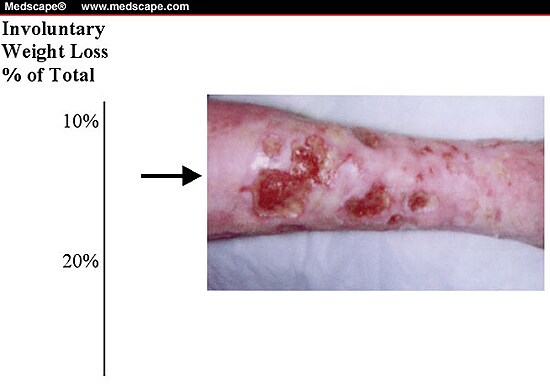Accordingly, their prevention and management are highly important nutritional deprivation and insufficient dietary intake are the key risk factors for the development of pressure ulcers and impaired wound healing unplanned weight loss is a major risk factor for malnutrition and pressure ulcer development. Weight loss pressure ulcer. Offer 125 to 15 grams of protein/kg body weight daily for adults at risk of a pressure ulcer who are assessed to be at risk of malnutrition when compatible with goals of care, and reassess was condition changes.
weight loss pressure ulcer
A pressure ulcers or injury — also known as a bedsore or decubitus ulcer — is an area of localized damage to the skin, underlying tissue, or both characteristics of malnutrition, such as unintended weight loss and inadequate energy intake are independent risk factors for the development of pressure injuries. Several studies, including the national pressure ulcer long-term care study, reported that eating problems and weight loss were associated with a higher risk of developing prus. 1–3 fry et al 4 also reported that preexisting malnutrition and/or weight loss was a positive predictive variable for all undesirable surgery-related hospital. Aging pressure ulcers. in patients across all care settings, compromised nutrition— as from poor intake, undesired weight loss, and malnutrition—increases the risk of pressure ulcers. it contributes to altered immune function, impaired collagen syn-thesis, and decreased tensile strength. in many cases, malnutrition also contributes.
